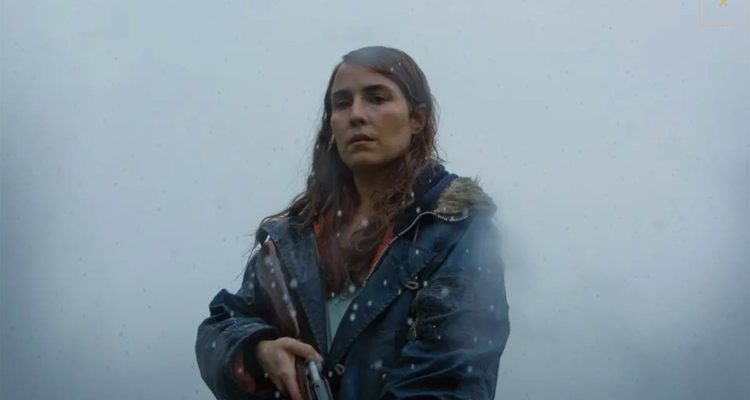Those looking to enjoy “Lamb” from Icelandic director Valdimar Jóhannsson would do well not to learn anything about it beyond its admittedly intriguing premise before watching it — to enter the screening room like lambs to the slaughter, if you will. Playing in the Un Certain Regard section of this year’s Festival de Cannes, the film centers on a couple living on a remote sheep farm, where they one day discover an unusual newborn that they immediately decide to raise as their own. It isn’t difficult to guess what might be so strange about the “child,” though it does make for a striking image: at first, only the newborn’s head is visible, its human legs and left arm only casually uncovered later. The effect of that revelation then isn’t so much surprising as sobering, the unsettling confirmation of a nagging doubt.
READ MORE: Cannes Film Festival 2021 Preview: 25 Films To Watch
“Lamb” indeed is more of a slow build-up of dread than it is a real shocker, and Jóhannsson does know how to rack up the tension with long takes, long silences, and sparse set design. The green and empty Icelandic hills appear both peaceful and foreboding, and the new parents, Maria (Noomi Rapace) and Ingvar (Hilmir Snær Guðnason), seem wary of making too much noise and breaking the fragile, unexpected peace they have suddenly been “blessed” with. They act like two people who cannot believe their luck and do not want to jinx it, but also as if they both somehow knew that this cannot last.
We know from the opening sequence, showing the very expressive faces of sheep in the barn clearly troubled and even scared by a heavy-footed off-screen presence, that something is lurking. Indeed, we know everything, and the tension Jóhannsson works to create can only last so long before “Lamb” begins to feel like a foregone conclusion. All that one expects to happen does happen following a cruel but unsurprising logic, and neither parent does anything truly unexpected to save and protect their “child.”
The arrival of Ingvar’s brother Pétur (Björn Hlynur Haraldsson) on the farm, therefore, is a rather random but absolutely welcome influx of humor and unpredictability. Dumped nearby from a car by a group of sinister-looking people all dressed in black, the man is initially presented as a potentially dangerous outsider, and we naturally assume that he might have come to destroy this unusual family and reveal their secret to the whole world. But “E.T.” this isn’t, and the film’s best surprise occurs when Ingvar calmly opens the barn and hugs his brother.
Björn Hlynur Haraldsson’s face, when he meets the now slightly grown-up Ada (the name given to the mysterious child), is a priceless mix of profound concern and polite silence. This first rational reaction to the whole wild scenario offers an invaluable moment of release in what up until that point threatened to be little more than a high-concept film completely detached from reality. A bit of a loser, Pétur is a musician with money problems but also a genuinely relaxing presence that beautifully breaks the tension and makes for some heart-warming but still deeply odd moments of baby Ada hanging out with her fun uncle.
READ MORE: Summer 2021 Preview: Over 50 Movies To Watch
Pétur’s fixation on Maria conveniently tells us a lot about the trio’s past in just a few words and gestures, but his interest in her also seems to derive from a genuine concern about what the hell is actually happening on this farm. It is for this reason, and not because of her potential attraction to him, that Maria soon drives him back to the bus stop. The film then goes back on its journey towards unavoidable pain and sorrow, and the whole uncle episode feels like an addition in the middle of what might have worked better as a short film. [C]
Follow along with our full coverage from the 2021 Cannes Film Festival here.

